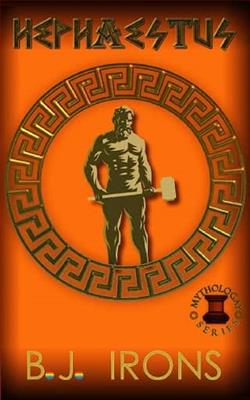Martial Peak Reviews
B.J. Irons' Hephaestus is a compelling reimagining of the often-overlooked Olympian god, offering a fresh perspective on themes of rejection, resilience, and redemption. The novel delves into the life of Hephaestus, the God of fire and blacksmithing, who is traditionally depicted as an outcast among the gods due to his physical deformity and the disdain of his mother, Hera. Irons takes this mythological backdrop and weaves a narrative that is both poignant and thought-provoking, exploring the complexities of identity and the transformative power of love.
At the heart of the story is Hephaestus' journey from a scorned and broken god to one who seeks to redefine his place among the Olympians. The novel begins with a harrowing depiction of Hephaestus' fall from Mount Olympus, a symbolic and literal descent that sets the stage for his character development. This fall, orchestrated by his mother, Hera, is not just a physical injury but a deep emotional wound that fuels his desire for revenge and recognition. Irons does an exceptional job of portraying Hephaestus' internal struggle, capturing the bitterness and determination that drive him.
The introduction of Hestio, the God of the hearth and families, serves as a pivotal moment in Hephaestus' life. Hestio's kindness and empathy stand in stark contrast to the cruelty Hephaestus has endured, offering him a glimpse of acceptance and understanding. The relationship between Hephaestus and Hestio is beautifully crafted, highlighting the novel's central theme of love's ability to heal and transform. Irons' portrayal of their growing bond is tender and nuanced, providing a counterbalance to the darker elements of the story.
One of the most striking aspects of Hephaestus is its exploration of the concept of revenge versus redemption. Hephaestus' initial desire to return to Mount Olympus is fueled by a need to prove himself and exact vengeance on those who have wronged him, particularly Hera. However, as the story unfolds, it becomes clear that this path is fraught with danger and potential self-destruction. Irons skillfully navigates this tension, allowing readers to witness Hephaestus' internal conflict and growth. The novel poses important questions about the nature of power and the true meaning of strength, challenging the traditional portrayal of the gods as infallible beings.
Irons' writing is both evocative and accessible, making the mythological elements of the story feel fresh and relevant. The author’s ability to breathe new life into these ancient characters is commendable, and the world-building is rich and immersive. The depiction of Mount Olympus and its inhabitants is vivid and detailed, providing a backdrop that enhances the narrative's emotional depth.
In terms of character development, Hephaestus is a standout. Irons crafts a multi-dimensional protagonist whose journey is both heartbreaking and inspiring. The transformation from a vengeful outcast to a god capable of love and forgiveness is handled with sensitivity and insight. Hestio, too, is a well-developed character, serving as a catalyst for Hephaestus' change while also having his own arc of growth and self-discovery. Their relationship is a testament to the novel's exploration of the power of empathy and connection.
Comparatively, Hephaestus shares thematic similarities with other works that explore the lives of marginalized or misunderstood figures in mythology. For instance, Madeline Miller's Circe and Neil Gaiman's Norse Mythology both offer nuanced portrayals of characters who defy traditional narratives. Like these works, Irons' novel challenges readers to reconsider preconceived notions about mythological figures, offering a more humanized and relatable perspective.
Overall, Hephaestus is a powerful and engaging read that resonates on multiple levels. Its exploration of themes such as identity, acceptance, and the redemptive power of love is both timely and timeless. B.J. Irons has crafted a narrative that not only entertains but also invites reflection on the nature of strength and the importance of compassion. For readers who enjoy mythological retellings with a focus on character development and emotional depth, Hephaestus is a must-read.
In conclusion, B.J. Irons' Hephaestus is a masterful reimagining of a lesser-known god, offering a story that is as much about personal growth as it is about mythological intrigue. The novel's impact lies in its ability to weave a tale that is both epic in scope and intimate in its exploration of the human (and divine) condition. It is a testament to the enduring power of storytelling and the timeless appeal of mythology.
























Reviews 0
Post a Reviews: